
Ocean Teens is an educational programme provided by SEA LIFE Kelly Tarlton's Aquarium tailored for young adult learning. Develop your high school students' passion for our oceans through the exploration of our underwater world. We currently offer two different types of visits:
Self-directed visit
Your group will able to explore our aquarium at your own pace through a self-directed visit to see the highlights of the aquarium, getting hands-on in our rockpools and viewing sharks, stingrays, turtles, and penguins.
Classroom session
The 45-minute Classroom Session involves an educational presentation from one of our dedicated marine educators in our school room, where students are encouraged to explore, discuss and investigate different topics and themes. The session will focus on the topic of your choice, each of which is complimented by using authentic animal artefacts.
Your group will then embark on a self-directed tour around the aquarium to reiterate and emphasise the learnings from the classroom session. Topic specific worksheets are available for download to ensure your students are getting the most educational value from their visit as possible.
Program Pricing
| 2025 Prices | |
| High School - Self-directed | $15.00 |
| High School - Classroom Session | $18.00 |
| FREE teacher ratio | 1:6 - 1 free adult for every 6 students |
| Additional teacher ticket | $32.00 |
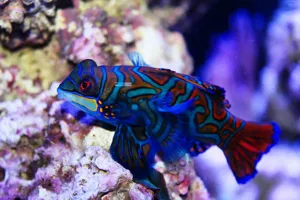
Adaptations & Evolution
During this education session students will be introduced to the basics of DNA, mutations, natural selection and the role these play in both evolution and adaptations. Serving as a comprehensive introduction, or a perfect recap, this session engages students with real-life examples that they can see in authentic marine artefacts and within the attraction. Education session content will vary between year levels. By completing this session students will:
- Learn the basic structure of DNA
- Understand what type of mutations can occur in DNA and how.
- Understand how natural selection occurs and why.
- Understand the relationship and difference between evolution and adaptations.
- Understand the different types of adaptations and how they occur.
- Be able to recognise adaptations in animals and explain the advantage they provide.
Book Now
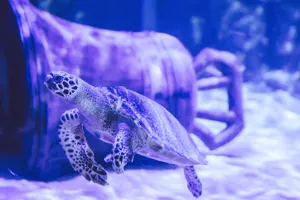
Marine Careers
Are your students intrigued by the wonders of the ocean? Do they dream of exploring the shallows and depths of the sea? If so, then this presentation is for you.
Join us as we delve into the fascinating and fast-growing world of Marine Science and uncover the diverse array of career opportunities. From marine biology to oceanography, this presentation will provide you with a brief overview of the exciting paths you can pursue in this dynamic field after leaving high school. In this lesson, you can expect to:
- Gain insights into why you should consider marine science as a career
- Learn about the different career pathways available
- Discover which high school subjects are essential for building a strong foundation in marine science. From English to Chemistry, we'll explore how each subject contributes to your understand of marine science and prepare you for further study in the field.
- Learn the importance of gaining hands-on experience through internships and volunteering opportunities and how they can provide valuable insights into various aspects of the industry.
Book Now
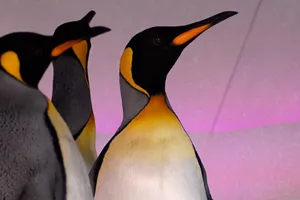
Antarctica
A mix of early Antarctic exploration and polar ecosystems, this lesson takes your students on a journey to the Earth’s harshest habitat. Not only will they be regaled with the story of Robert Falcon Scott and his part in the race to the South Pole, they will also learn about sub-Antarctic species and their unique adaptations to the cold. Students will be engaged every step of the way with artefacts from the ‘age of exploration’ as well as artefacts from our penguin colony. Education session content will vary between year levels. By completing this session students will:
- Know who Robert Falcon Scott was and the role he played in Antarctic exploration
- Understand how early exploration has contributed to modern day climate change research.
- Learn about the Antarctic Treaty and what it means.
- Learn about the environmental conditions of polar habitats.
- Recognise specific adaptations that animals living in polar regions have in order to survive the harsh conditions.
- Understand the threats facing polar habitats and the animals that live there, as well as ways that we can all help protect these regions.
Book Now
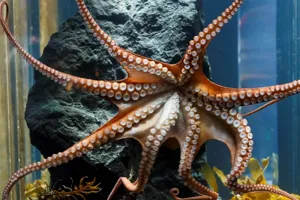
Weird and Wonderful
Welcome to "Weird and Wonderful", an exploration of the extraordinary adaptations found in the marine environment. While we often hear about basic adaptations like the protective shells of sea turtles or the sharp teeth of sharks, nature has crafted an array of bizarre and fascinating strategies that go far beyond these common traits. In this lesson, we will delve into some of the truly unusual and ingenious ways animals have evolved to survive and thrive in their environment.
From having different types of blood, having more than one jaw or even glowing in the dark, these adaptations are just some examples of the incredible diversity of life on Earth. We'll examine how these unique traits help animals find food, escape predators, and cope of the challenges of their habitats.
Book Now
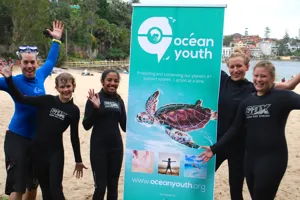
Ocean Youth Program
The Ocean Youth Program builds tomorrow's leaders and change makers to conserve and protect our oceans. Ocean Youth is all about gaining skills and implementing solutions to some of the big, hairy issues our oceans face, and influencing others to do the same.
Find out more